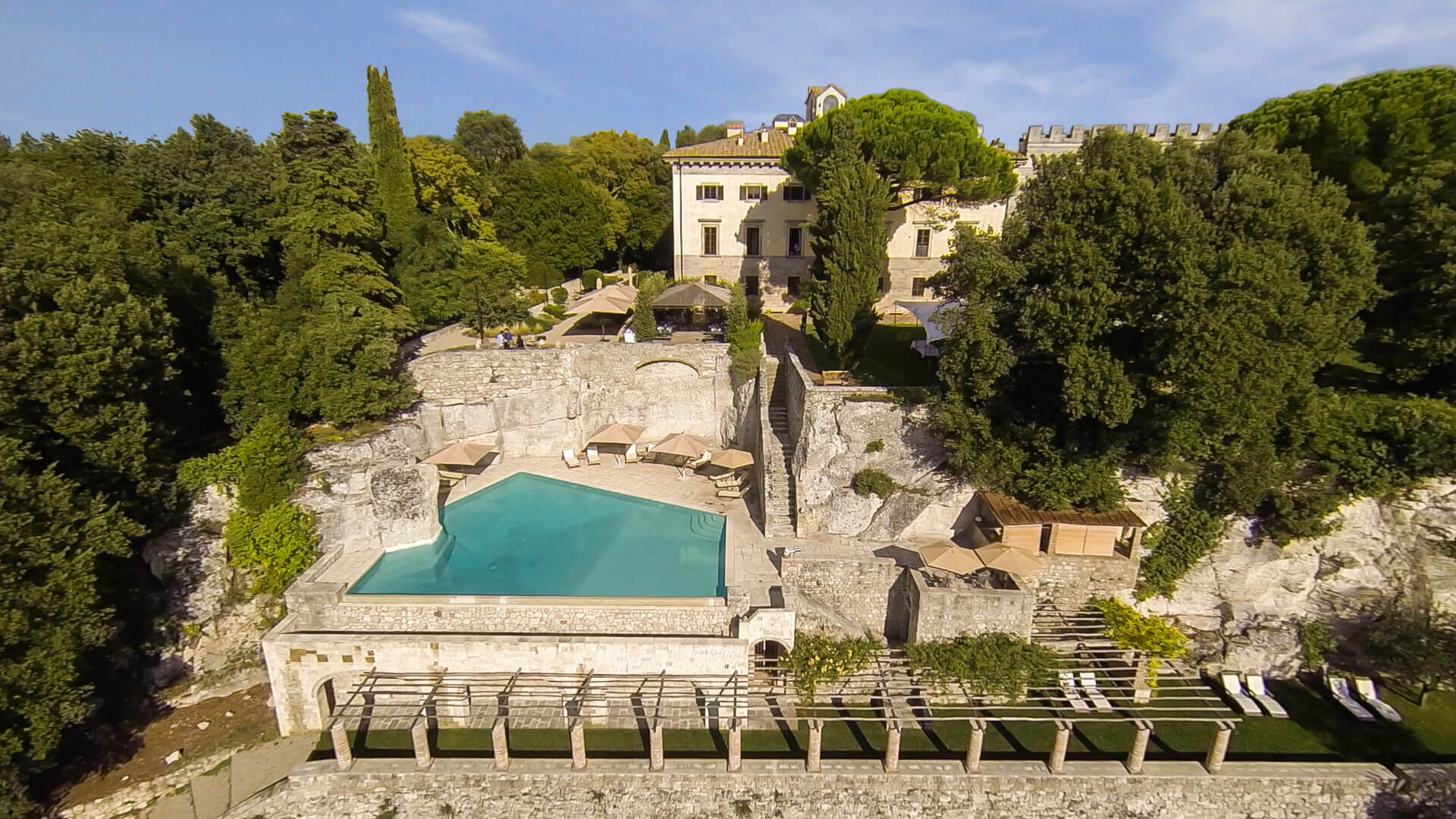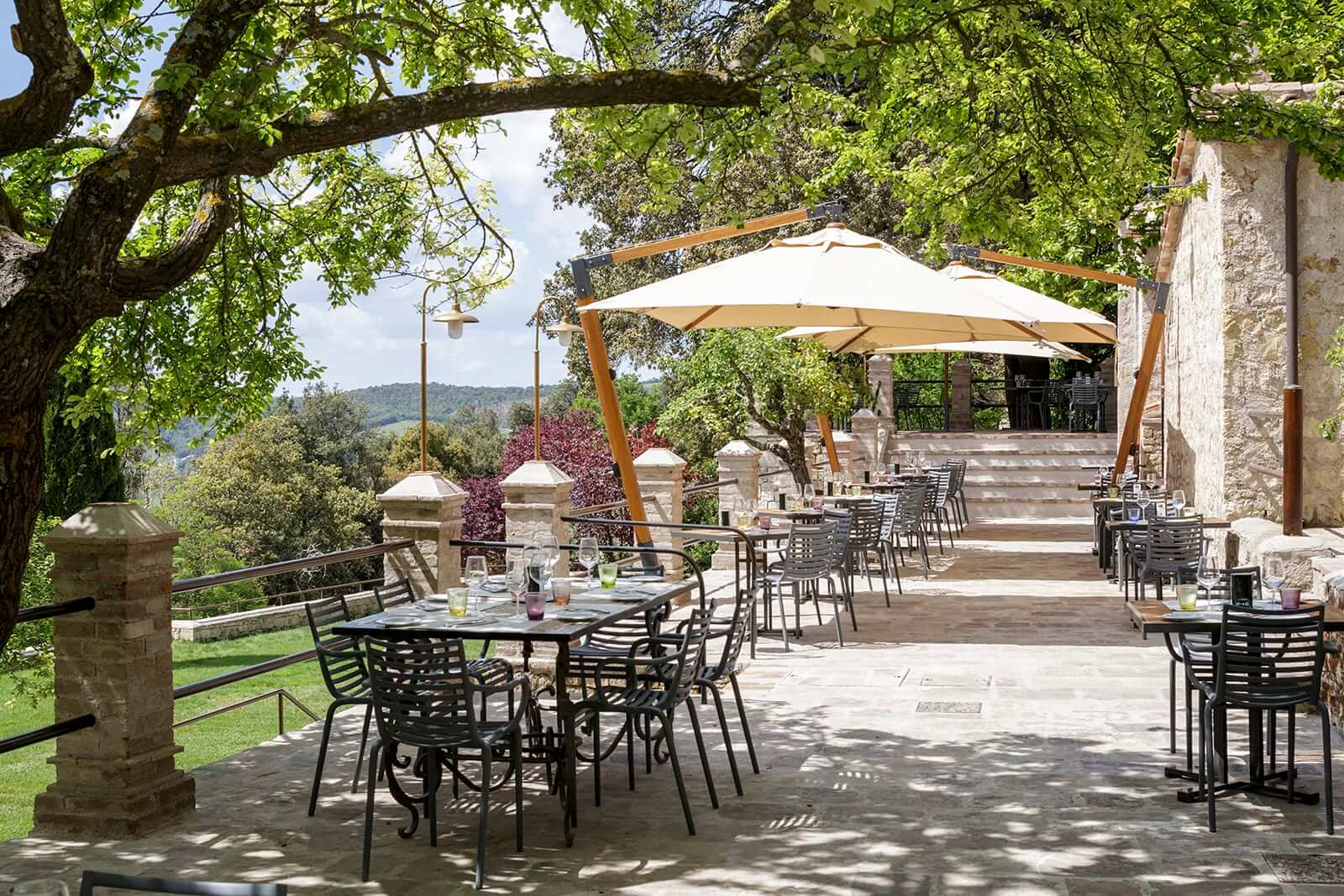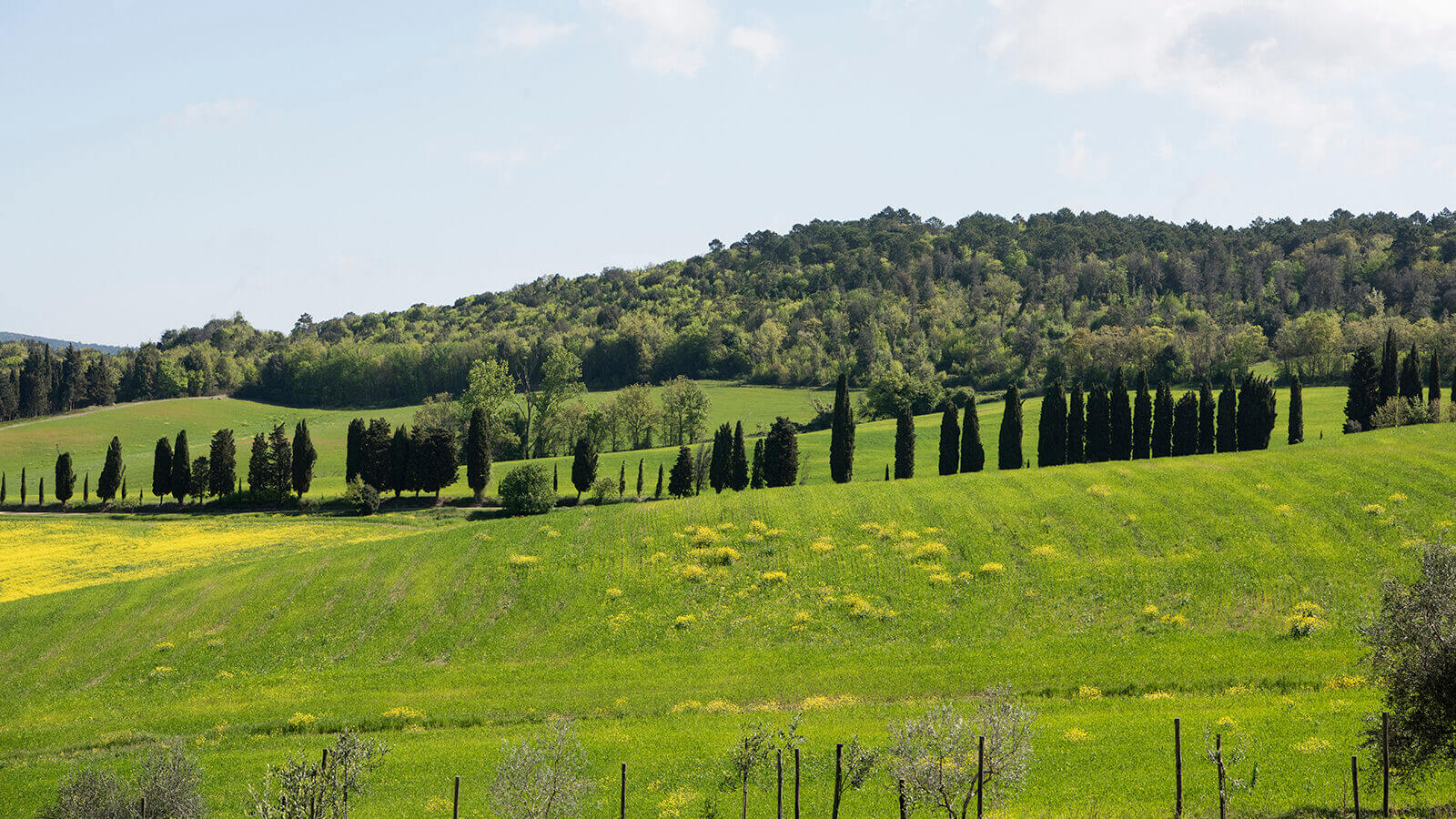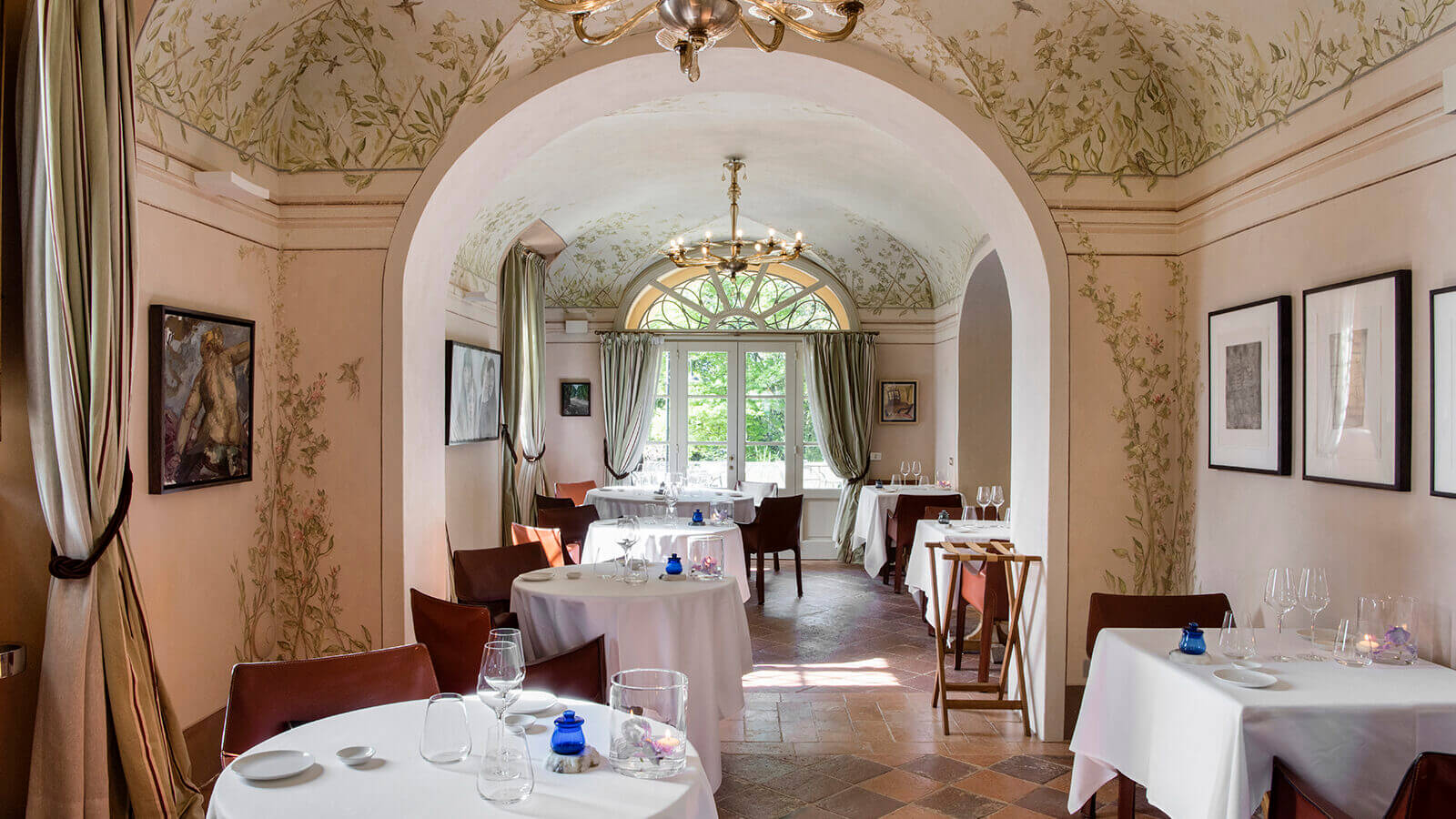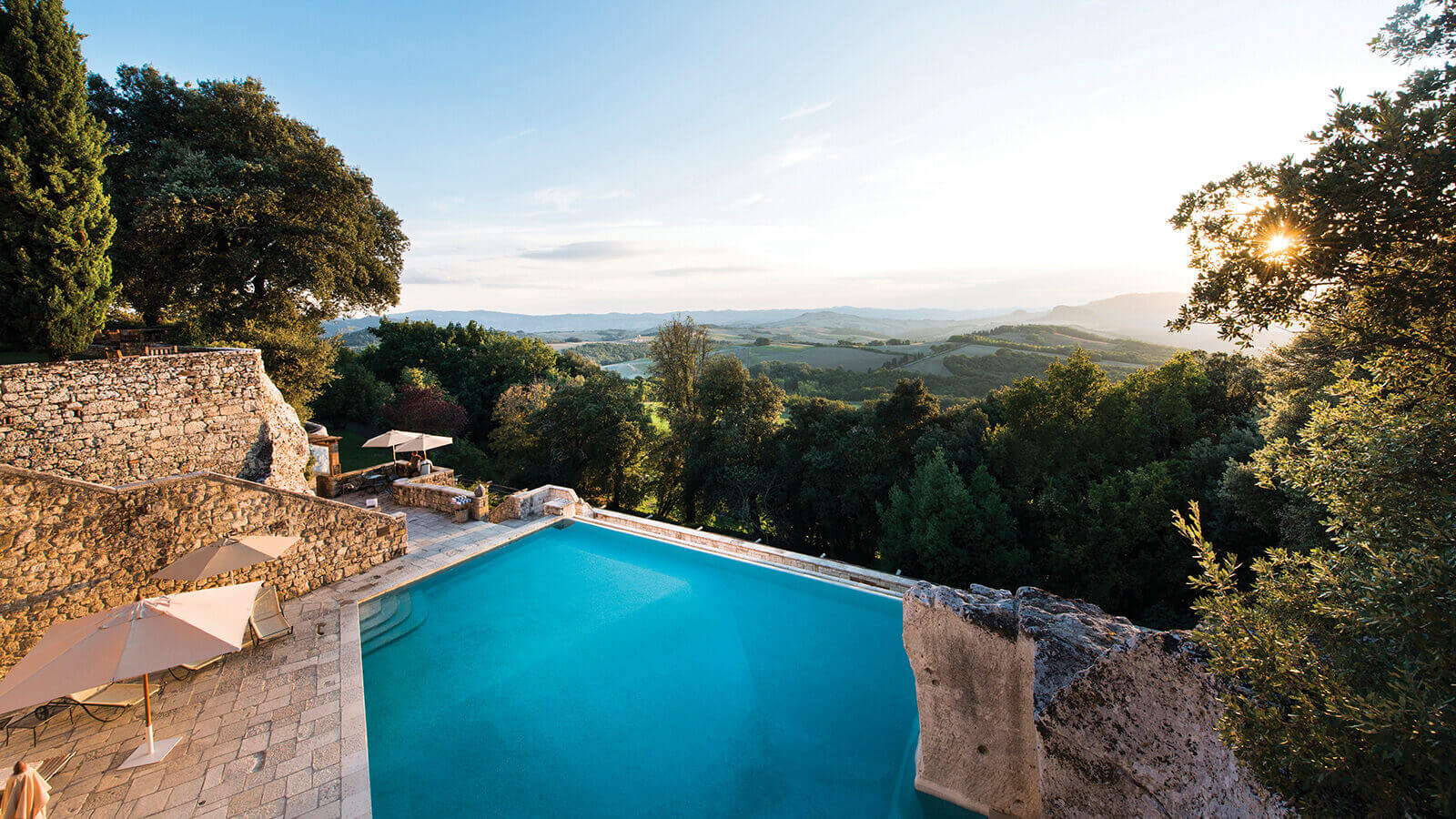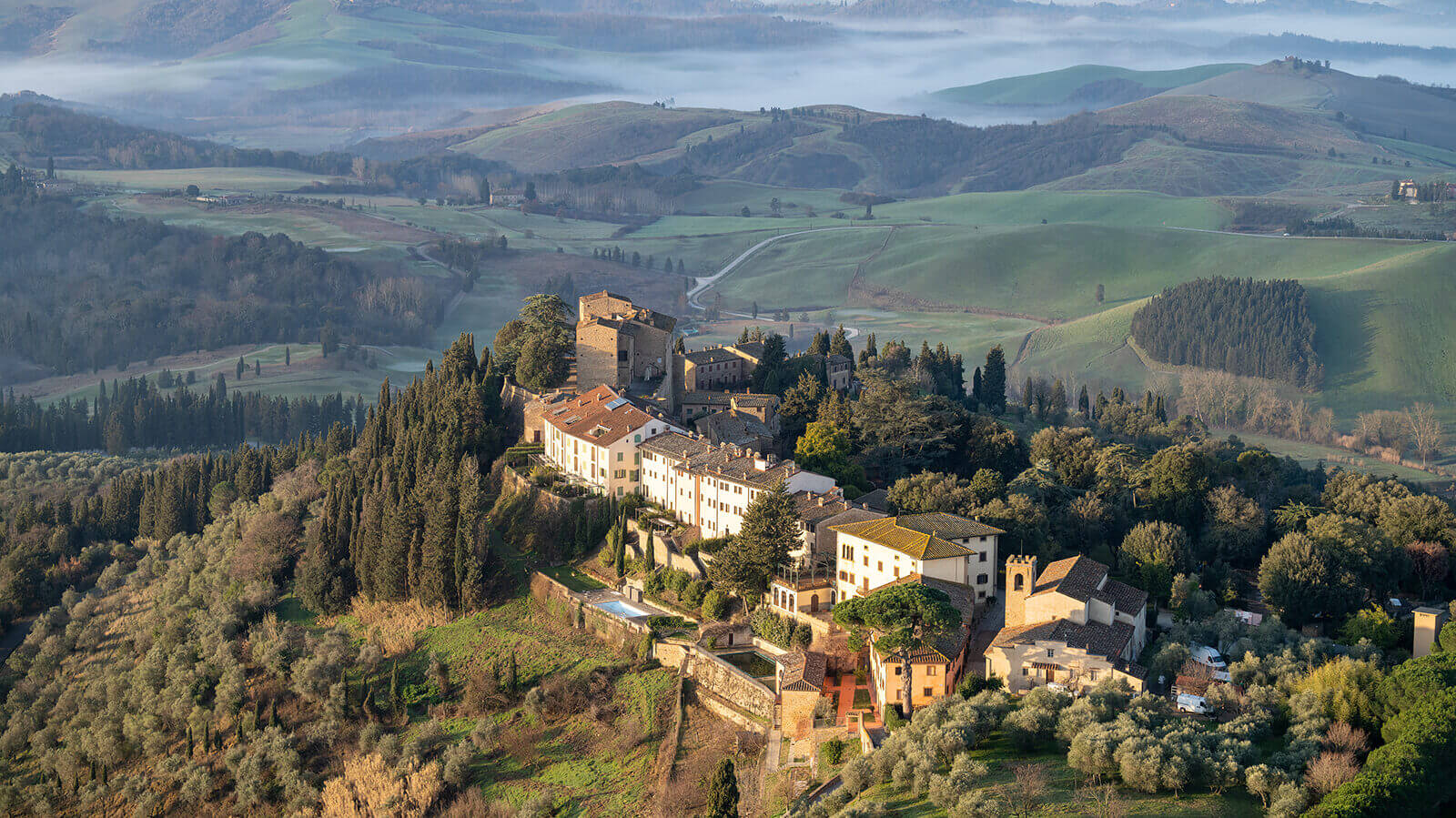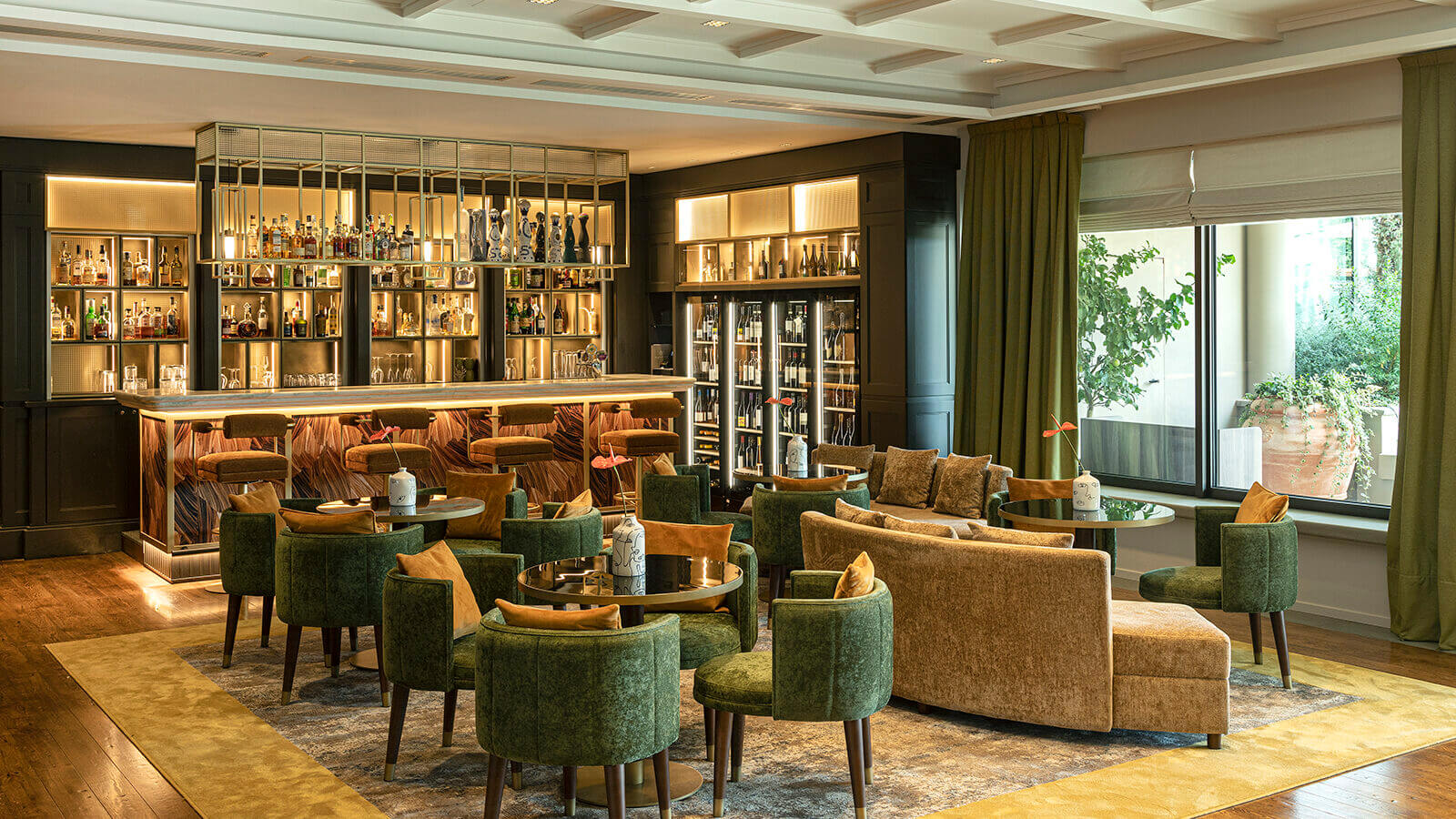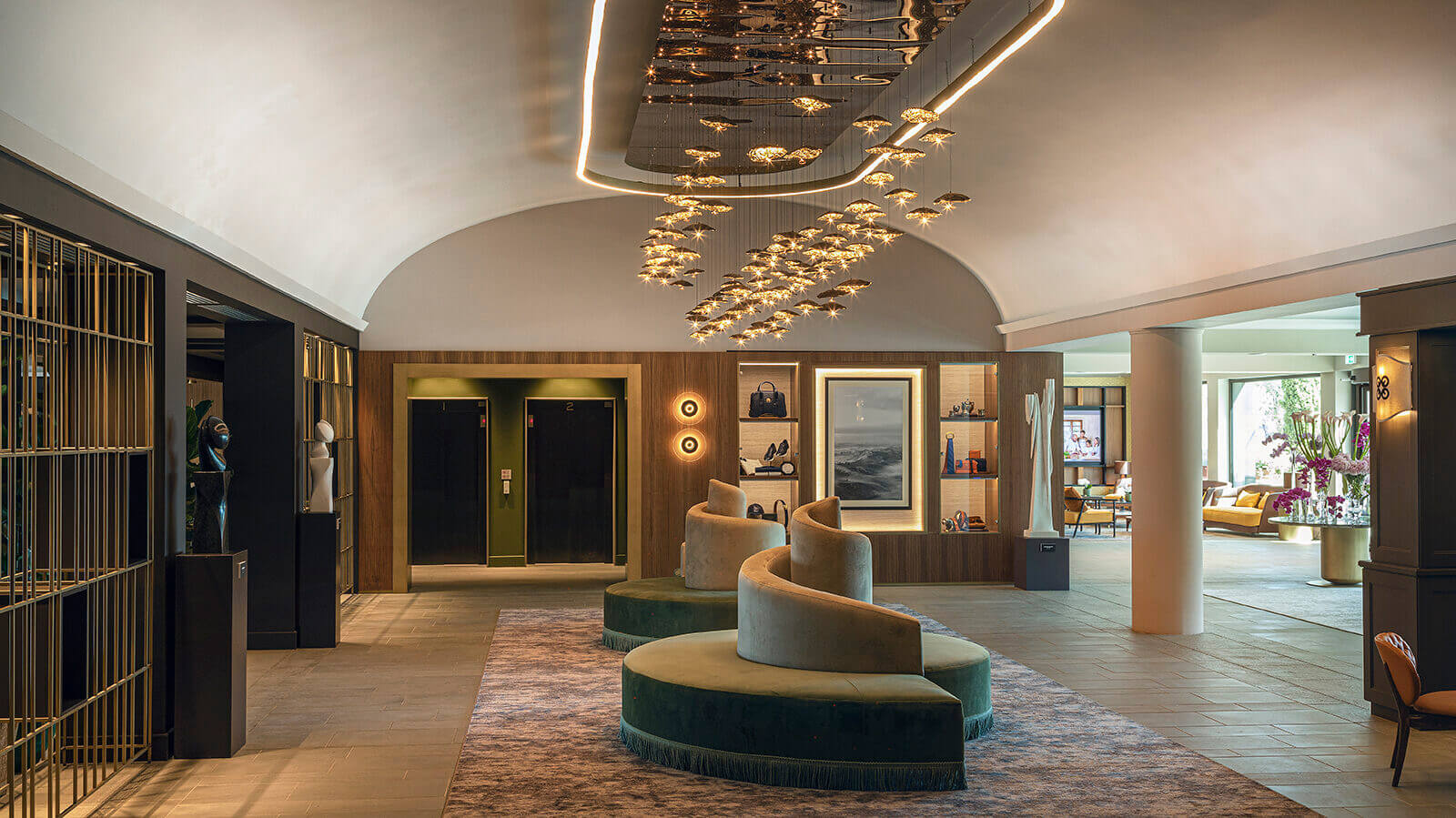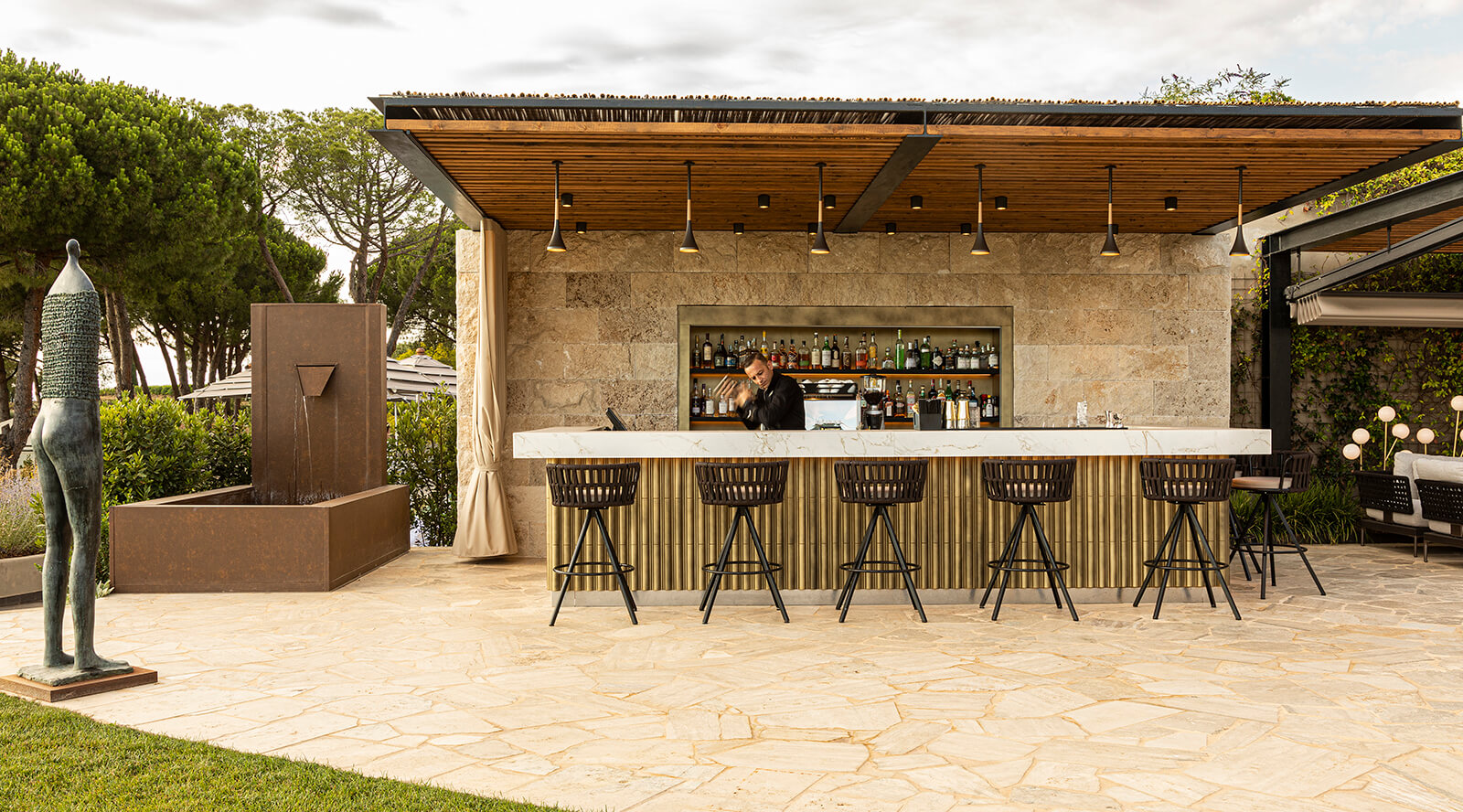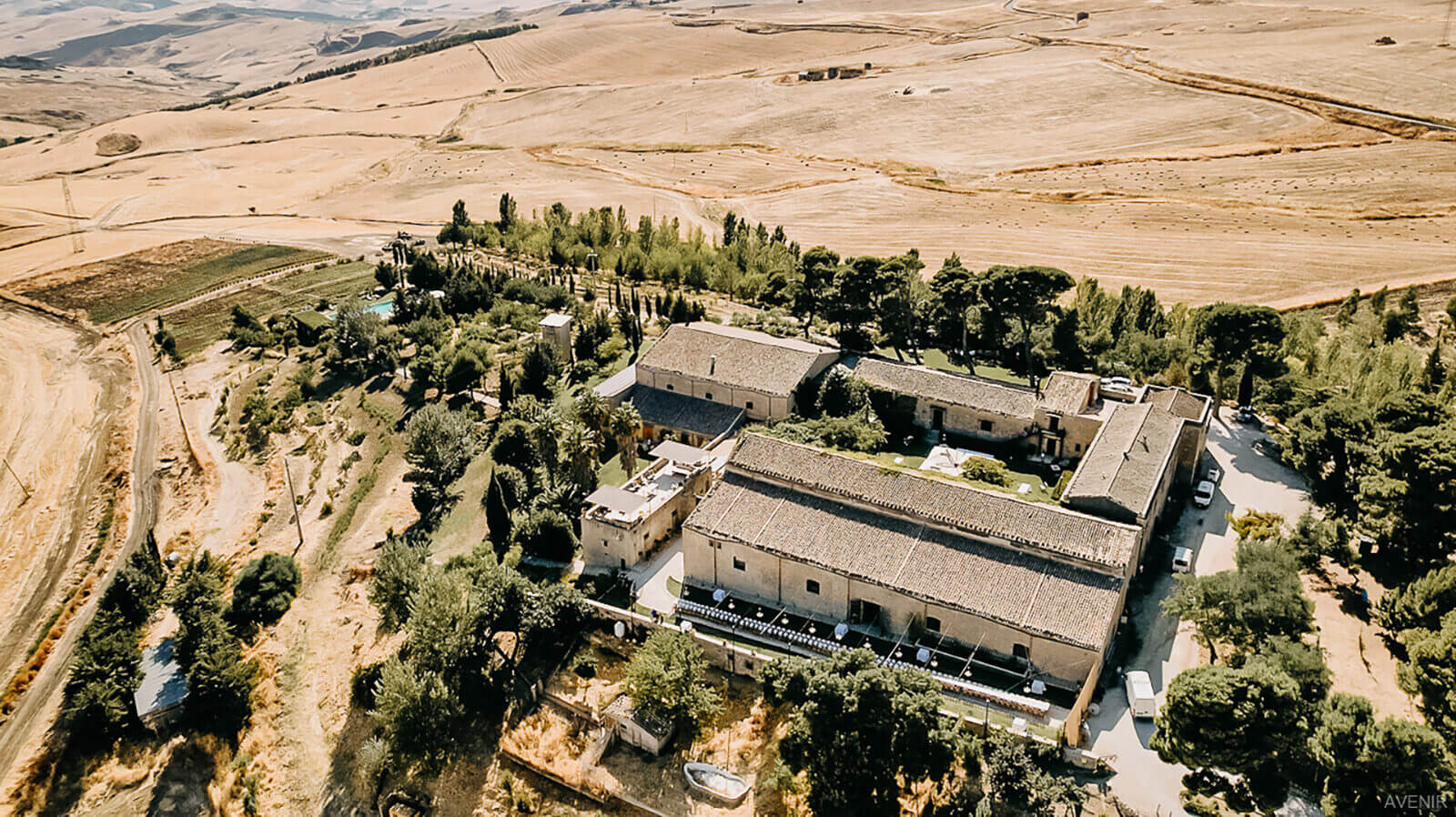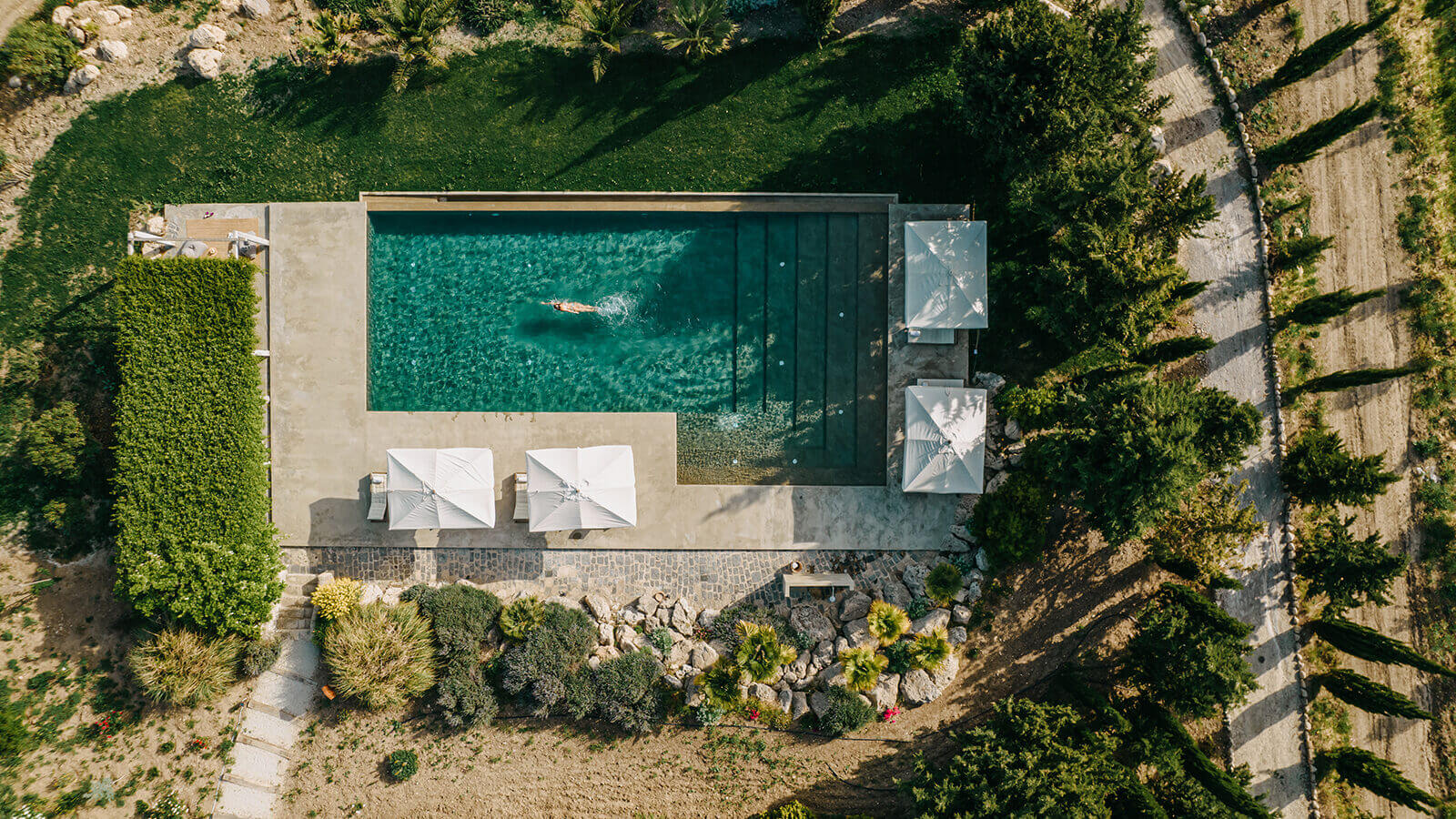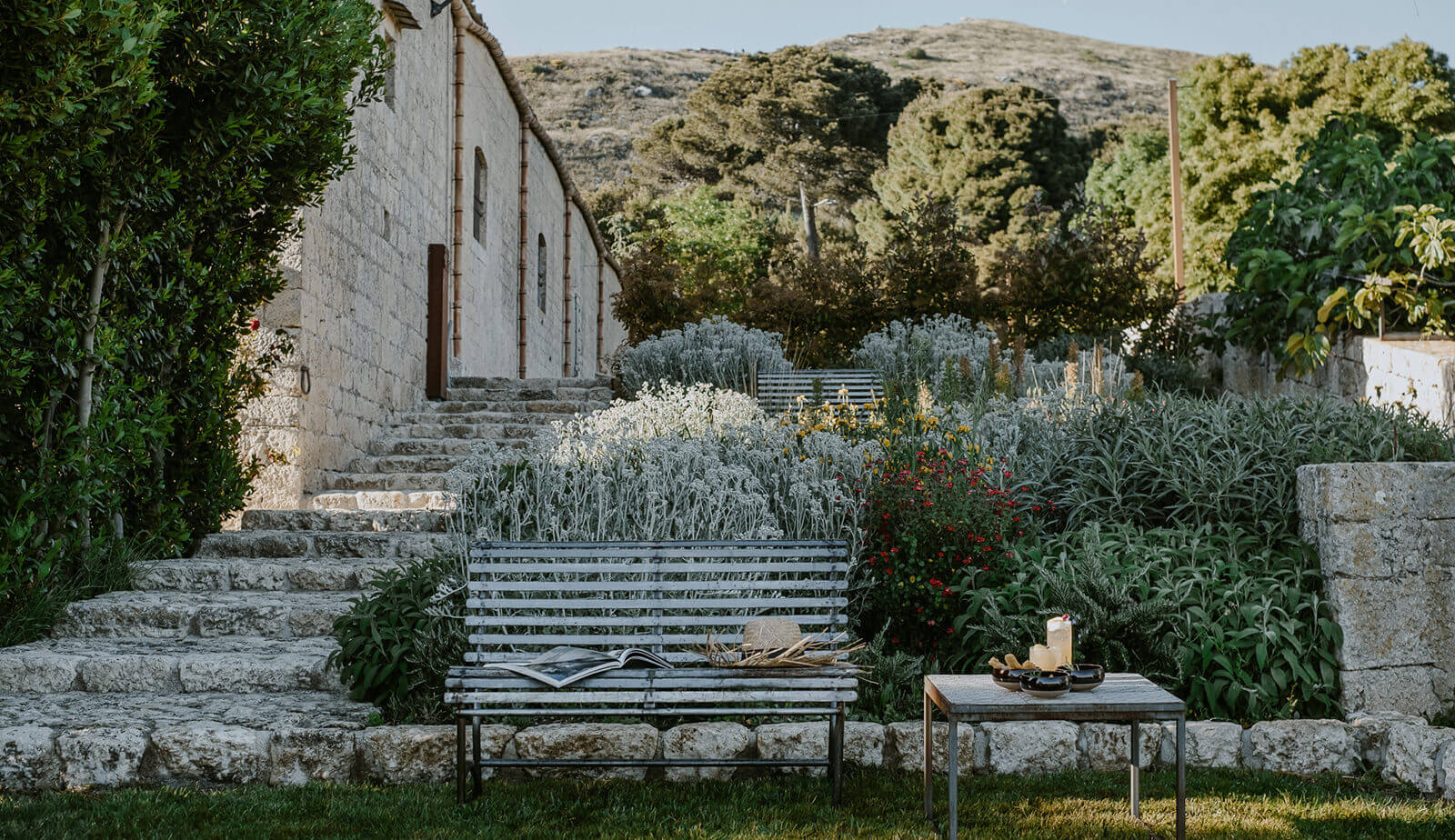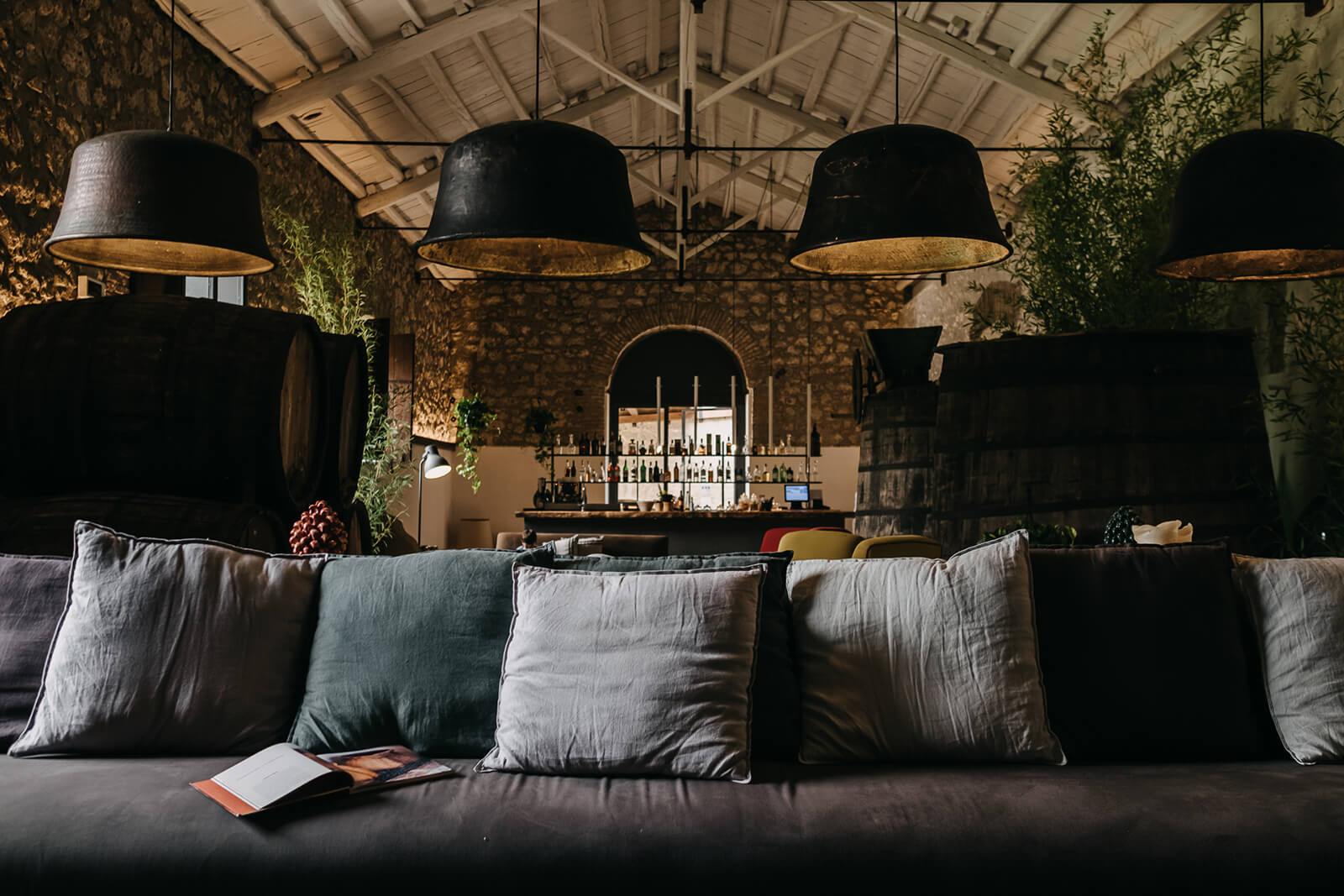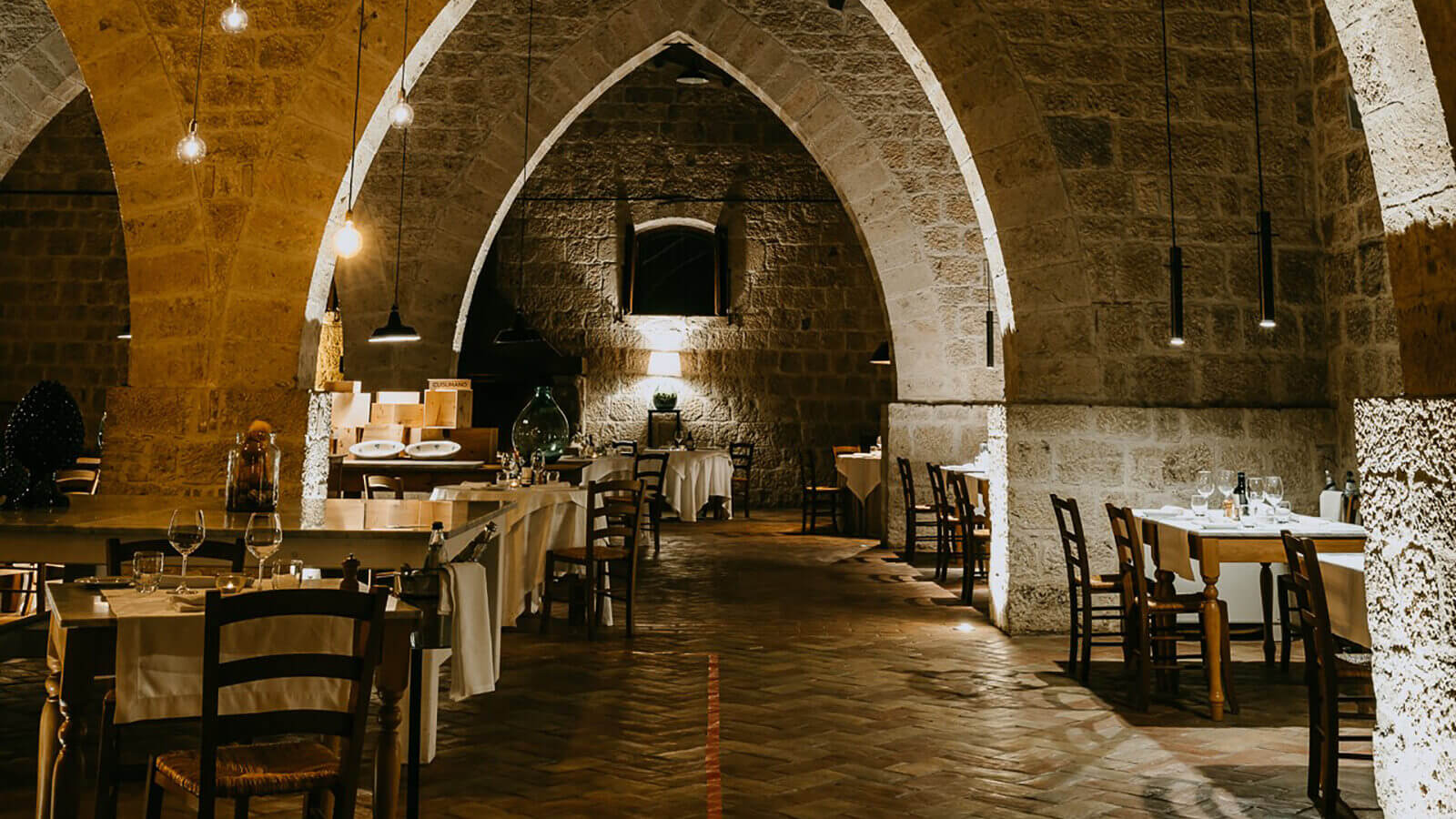Experience some of Italy’s most eco-friendly vacation settings, where spectacular views, luxurious settings, warm hospitality, and delightful cuisine are part of resorts dedicated to sustainable hospitality. These three hotels offer ecotourism in Italy with a low environmental impact that doesn’t skimp on elegant and refined surroundings. Discover three locations that are symbols of luxury ecotourism where sustainability is their raison d’etre.
Luxury Ecotourism: Borgo Pignano
An elegant 750-acre rural expanse in the heart of Tuscany, Borgo Pignano is a leader in sustainable luxury hospitality, now Green Globe certified, within easy reach of Volterra, San Gimignano, Florence, and Siena.
It comprises a largely self-sustaining hamlet with farmland dating back to Etruscan times and a grand 18th-century villa. All this magnificence is privately owned and offers warm hospitality in a peaceful, natural setting with sweeping views of the coast.
The villa, farmhouses, and apartments on the property have been restored and decorated using eco-friendly materials such as locally sourced stone, reclaimed slate, organic plasters, and ecological paints. Simple and effective solutions such as bogs retain rainwater and prevent soil erosion, while collected rainwater irrigates the property’s gardens and greenhouses, which produce fruits and vegetables year-round. Natural and artificial lakes also irrigate farmland, orchards, olive groves, and vineyards, where only historical varieties, indigenous to Tuscany, are grown.
The villa’s heating and hot water systems are powered by solar panels and woodchip boilers made from locally harvested wood. In addition, two Tesla charging points have been installed in the hotel’s parking lot. Single-use plastic has been removed from the entire estate, and a successful beekeeping project provides Borgo Pignano with organic honey and beeswax. If all that were not enough, an in-house herbalist maintains a balanced crop of wild and cultivated herbs for use in cooking, herbal teas, perfumes, and fragrant oils.
Luxury Ecotourism: Toscana Resort Castelfalfi
Surrounded by olive groves, cultivated fields, and extensive vineyards, the land at Toscana Resort Castelfalfi has been farmed for thousands of years, and today its 11,000 hectares/27,181 acres of fertile dry land continue to be cultivated using traditional farming practices to produce an abundance of organic produce for the resort’s seven restaurants.
The 25 hectares/61 acres of vineyards produce no less than six organic wines, and the riches of 10,000 olive trees result in 100 percent organic extra virgin olive oil. Wildflower honey is produced on site using biological beekeeping methods, which guests can experience firsthand. In addition, enthusiasts have the opportunity to participate in grape and olive harvesting during certain months of the year.
Additional green initiatives include rainwater harvesting in man-made lakes for irrigation of vineyards, olive groves and golf courses, and a biomass power plant that provides green thermal energy, heating and cooling Castelfalfi’s buildings.
Luxury Ecotourism: Susafa
A bucolic landscape of Sicily for centuries, Susafa is as integral to the land as the rolling green hills that envelop it. The Saeli-Rizzuto family has cared for this farmhouse and its surrounding acres for five generations, and the current generation continues an age-old commitment to sustainability with a variety of green practices that directly benefit a guest’s stay but also the land itself.
Produce grown on Susafa’s fertile land is grown according to a sustainable agriculture project “Sowing the Future” designed to reduce the food supply chain and educate consumers. The resulting seasonal fruits and vegetables are served in Susafa’s romantic restaurant, set in an old barn, along with “zero-kilometer” produce, all harvested without the use of pesticides or chemical fertilizers.
Susafa has also been actively promoting the growth of local flora since 2014, and a designated space for wild plants can be found in the vast garden that covers about 6,000 m², where ‘irrigation of the gardens is fed by collected rainwater. In addition, photovoltaic panels are used to produce hot water and electricity, and the air conditioning system is certified for energy efficiency.
Susafa organizes a range of experiences and activities to help guests discover and learn more about the natural wonders of Sicily. These include garden visits, cooking classes, wine tastings, talks on regional traditions and ancient crafts, as well as cheese-making sessions and more.
